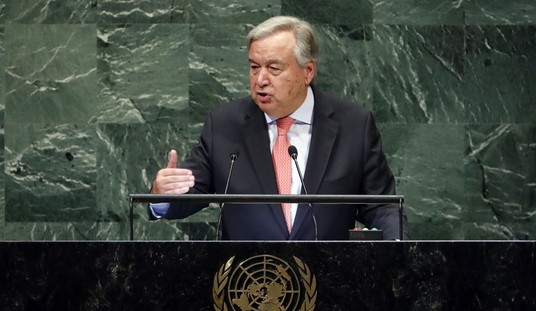Hey, do you remember that civil war story from Syria? Not that many people do these days, at least judging by the headlines we see each week in the American media. But it’s not over.. not by a long shot. Just this weekend we saw another sign that Bashar Assad’s strategy of waiting it out and outlasting international attention might be paying dividends when he said that he wasn’t going to be stepping down any time soon.
Syrian President Bashar Assad said in a newspaper interview Saturday he won’t step down and will instead “face the storm,” raising new doubts about a U.S-Russian effort to get Assad and his opponents to negotiate an end to the country’s civil war.
In the Syrian capital Damascus, meanwhile, a powerful explosion went off in the Ruken al-Deen neighborhood, killing three people and wounding five, Syrian state TV reported. It said the blast was caused by a car bomb and that experts are dismantling other explosives in the area.
You have to dig around for stories like that, though. If you spent any morning or prime time watching cable news over the past week, this story was an afterthought at best. So what happened to a controversial situation which was once 24/7 fodder for the news machine? At Outside the Beltway, Dr. James Joyner points us to a piece by Jay Ulfelder which posits that the media is simply tired of reporting on it.
The reason GDELT’s count of violent events has diverged from other measures of the intensity of the violence in Syria in recent months is probably something called “media fatigue.” Data sets of political events generally depend on news sources to spot events of interest, and it turns out that news coverage of large-scale political violence follows a predictable arc. As Deborah Gerner and Phil Schrodt describe in a paper from the late 1990s, press coverage of a sustained and intense conflicts is often high when hostilities first break out but then declines steadily thereafter. That decline can happen because editors and readers get bored, burned out, or distracted.
Joyner’s take:
As Dave Schuler noted recently in a comment thread on a completely different topic, bloggers experience the same phenomenon. After a while, we get tired of covering a story that moves slowly but is otherwise “same old, same old.” The civil war in Syria has been dragging on for two years now and is horrifically bloody. For most of us, though, that fact has become almost background noise; it’s status quo, not news.
I’m not sure about this. I suppose “media fatigue” is one way of putting it, but it doesn’t really seem to capture the heart of it. It’s more like a case of a media with the attention span of a fruit fly combined with a desire for stories that fit the general theme that they would like to convey. Granted, the recent news cycle hasn’t been great for the traditional media, what with all the scandal stories running around Obama’s White House, but Syria was never really a good story for them either.
When things aren’t going well, I think there’s a natural desire to “pivot” from the downward trending news. When you combine that with the admittedly long, grinding news cycle coming out of Syria, there’s probably a natural inclination to shove it toward the back page. And yet… the war drags on.








Join the conversation as a VIP Member